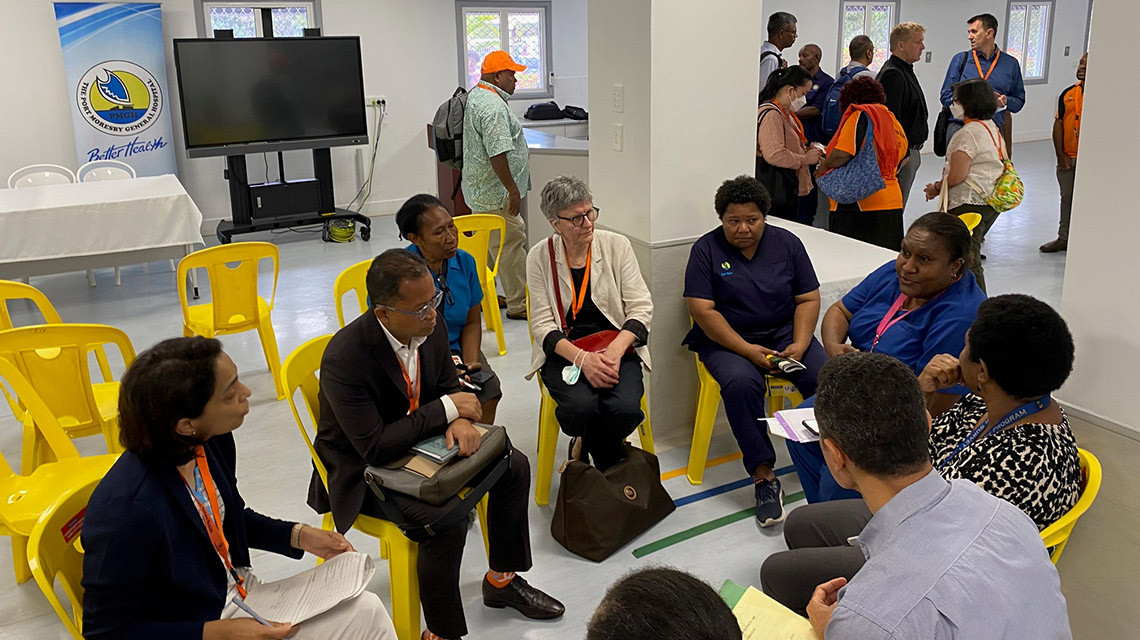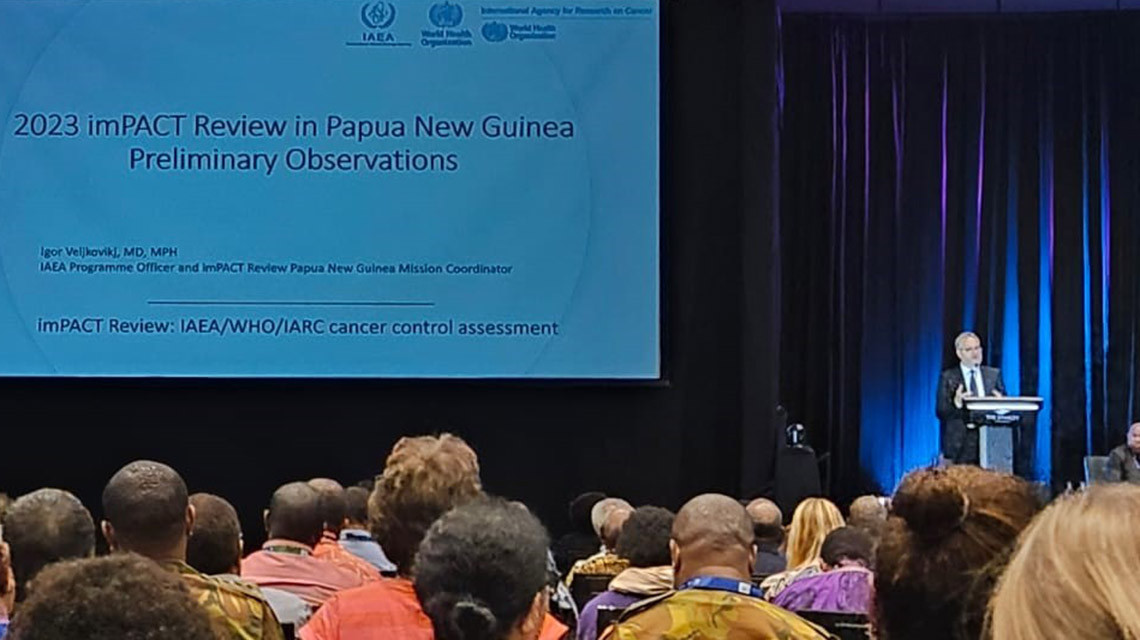Papua New Guinea has taken important steps to increase access to cancer services since the IAEA carried out its first imPACT Review in 2013 together with the World Health Organization (WHO) and the International Agency for Research on Cancer (IARC). In response to the mission’s assessment and recommendations for cancer control measures, Papua New Guinea is building a new radiotherapy centre due for completion by the end of next year. Further areas for attention include prevention and early-detection efforts (in particular for cervical cancer) and enhancing the national cancer registration and surveillance system, according to the findings of a team of international experts invited to assess the cancer control situation in the country.
The most prevalent form of cancer in Papua New Guinea is currently breast and cervical cancer, followed by oral, liver and prostate cancer. Total cancer cases are expected to increase by 79 per cent by 2040, with mortality expected to increase by 86 per cent. Given the scale of the problem, Papua New Guinea’s Ministry of Health requested a second imPACT Review to assess cancer needs and provide tailored, evidence-based recommendations. The Ministry also indicated Papua New Guinea’s interest in participating in the IAEA’s Rays of Hope initiative, which aims to increase access to radiation medicine for all.
“Our government is proactively addressing cancer as a priority health issue,” said Minister of Health Lino Tom. “Cancer is prioritized under the current National Health Plan (2021-2030), and our goal is to reduce incidence and achieve quality and affordable health care for all by 2030. To do this, we look forward to collaborating with partners such as the International Atomic Energy Agency, World Health Organisation and International Agency for Research on Cancer to strengthen our health service delivery, focusing on prevention and early detection through the support from global cancer programmes such as the Cervical Cancer Elimination Initiative” he added.
The new imPACT Review mission, carried out from 5 to 12 September 2023, was conducted by a team of 13 international experts nominated by the IAEA, WHO and IARC.








